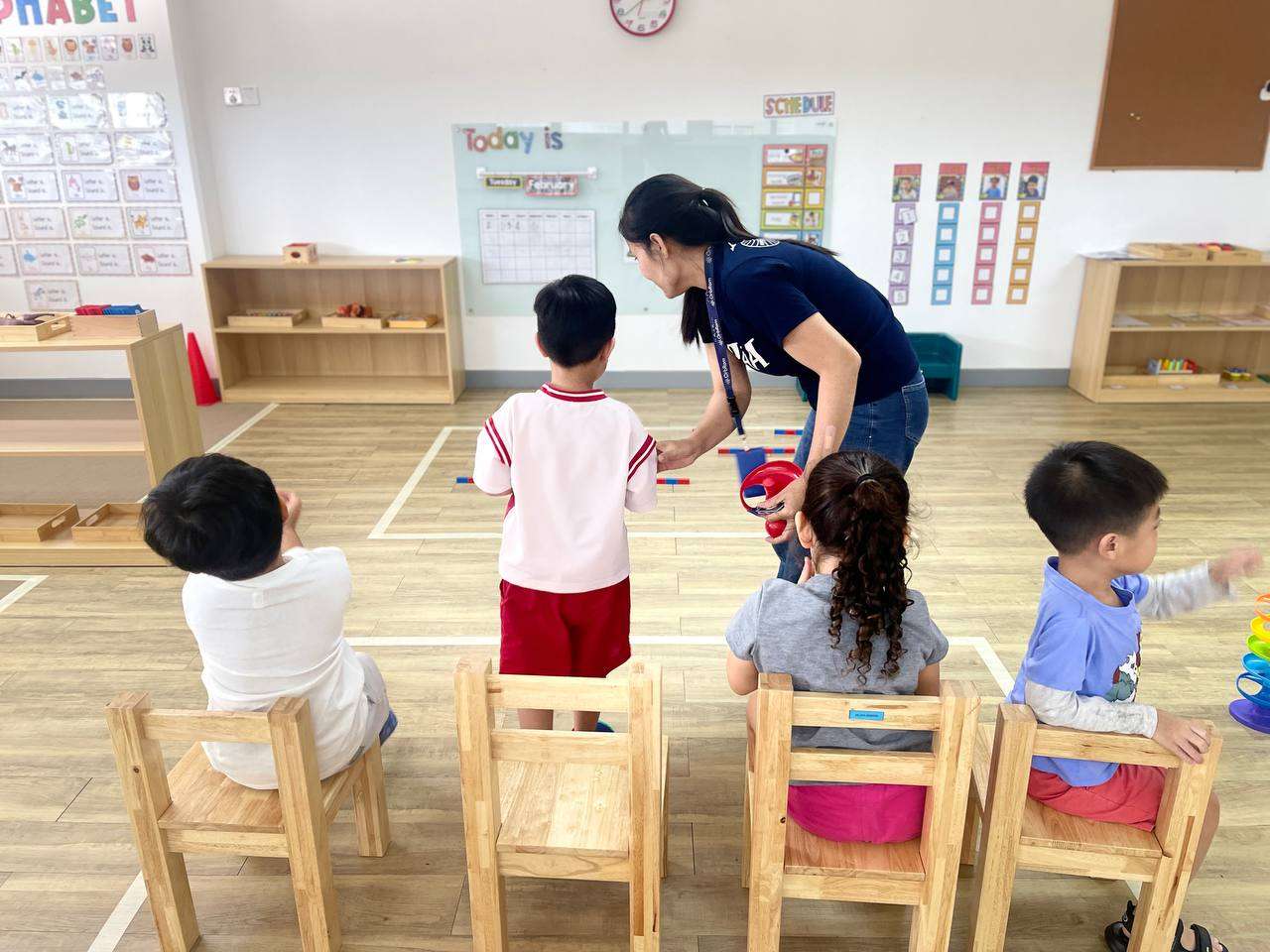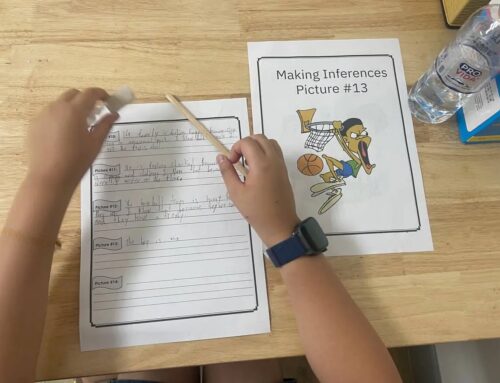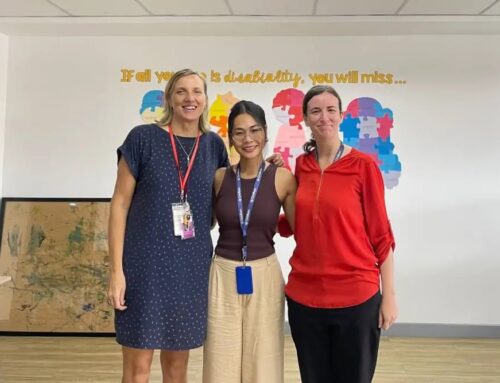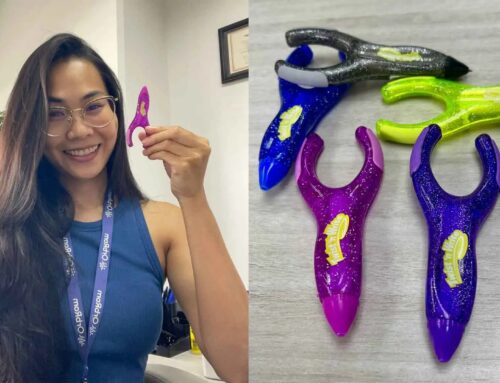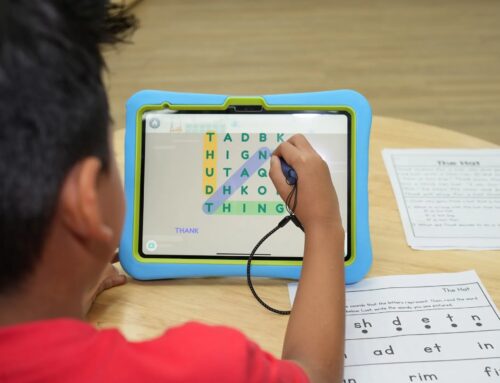[ad_1]
Every child has the right to learn in a supportive, respectful, and inclusive environment. Yet, for many children with disabilities or learning differences, traditional classrooms do not always offer the support they need to succeed. That’s where inclusive education and special needs schools come in—providing tailored instruction, therapeutic support, and environments where every student can thrive.
In Phnom Penh, parents are increasingly turning to schools and centers that specialize in inclusive education. These institutions recognize that children with autism, ADHD, speech delays, and other learning challenges deserve the same quality of education as their peers—just with the right support. At the forefront of this movement is OrbRom Center, offering programs that combine therapy, individualized learning, and a deep respect for each child’s unique abilities.
What Is Inclusive Education?
Inclusive education is a teaching approach that ensures all children, regardless of ability, are welcomed, supported, and valued in the learning environment. Instead of isolating students with disabilities into separate programs, inclusive education seeks to integrate them into mainstream learning while providing appropriate accommodations.
This model promotes:
-
Equal access to curriculum
-
Social inclusion with peers
-
Collaboration between educators and therapists
-
Positive attitudes toward diversity
Inclusive education doesn’t mean one-size-fits-all. It means adapting teaching methods and environments to meet the diverse needs of all learners.
Why Inclusive Education Matters in Cambodia
In Cambodia, there is growing awareness around disability rights and inclusive education, but implementation remains uneven. Many public schools still lack resources, trained staff, and accessibility to support students with special needs.
That’s why inclusive special education centers in Phnom Penh—like OrbRom Center—play a crucial role in filling the gap. They:
-
Provide specialized staff (therapists, special educators)
-
Design personalized learning plans
-
Offer therapies (e.g., speech, occupational therapy)
-
Create sensory-friendly, low-stimulation learning environments
-
Partner with families for ongoing support
This kind of learning setting can make a life-changing difference for children who would otherwise fall behind or be excluded.
Who Benefits from Inclusive Education?
Inclusive education supports all students, but it’s particularly beneficial for those with:
-
Autism Spectrum Disorder (ASD)
-
ADHD or attention regulation issues
-
Intellectual disabilities
-
Down Syndrome
-
Learning disabilities (dyslexia, dysgraphia, dyscalculia)
-
Sensory processing disorder
-
Speech and language delays
-
Social-emotional or behavioral challenges
Each child is given a chance to learn at their own pace, with tools and support that respect their learning style and developmental level.
The Role of Special Needs Schools in Phnom Penh
In Phnom Penh, special needs schools bridge the gap between traditional academic institutions and therapeutic support systems. These schools are designed to offer both education and therapy under one roof, making them ideal for children who require:
-
Individualized instruction
-
Speech therapy
-
Occupational therapy
-
Sensory integration activities
-
Behavior support strategies
-
Life skills training
OrbRom Center is one such example. It blends academics with developmental support, ensuring that no child is left behind due to their differences.
What Makes an Inclusive School Effective?
Inclusive schools succeed when they adopt a whole-child, collaborative approach. Key components include:
1. Individualized Learning Plans (ILPs)
Each child receives a tailored plan that outlines goals, strategies, accommodations, and therapeutic support. These are reviewed and updated regularly.
2. Specialist Support
Speech-language pathologists, occupational therapists, behavioral therapists, and special educators work as a team to support the child holistically.
3. Smaller Class Sizes
Fewer students per class allow for individualized attention and behavior support.
4. Multisensory Teaching Methods
Visual, auditory, tactile, and kinesthetic learning activities help children engage and retain information.
5. Social-Emotional Development
Social skills, emotional regulation, and confidence-building are built into daily routines.
6. Parental Involvement
Parents are viewed as partners in education. Inclusive schools engage families through regular meetings, home strategies, and progress updates.
A Look Inside OrbRom Center’s Inclusive Programs
At OrbRom Center in Phnom Penh, inclusion is more than just a buzzword—it’s the foundation of every program. Children from diverse backgrounds and with different learning needs receive:
-
Academic instruction aligned with Cambodian and international standards
-
Daily speech or occupational therapy, as needed
-
Structured routines to support focus and reduce anxiety
-
Peer interactions to build social and emotional skills
-
Highly trained staff who specialize in autism, ADHD, and developmental delays
Whether a child is nonverbal, needs help with fine motor skills, or struggles with classroom behavior, the team at OrbRom designs a supportive pathway tailored to their success.
Inclusive Education and the Power of Early Intervention
The earlier children receive the right support, the greater the impact on their learning and life outcomes. Early childhood intervention through inclusive education settings helps:
-
Improve cognitive and language development
-
Strengthen motor and self-care skills
-
Prevent social withdrawal or isolation
-
Support smoother transitions into mainstream or primary school
-
Build lifelong learning habits
Parents who choose inclusive programs early often report better communication, greater independence, and improved classroom readiness for their children.
How to Choose the Right Special Needs School in Phnom Penh
When looking for an inclusive school or special education program, consider these key questions:
-
Does the school provide individualized learning plans?
-
Are therapists on staff (speech, OT, behavior)?
-
How does the school accommodate sensory or behavioral needs?
-
Is the environment calm, welcoming, and adapted for special learners?
-
Does the school communicate regularly with families?
-
Are success stories and parent testimonials available?
Parents in Phnom Penh consistently rate OrbRom Center highly for meeting these criteria.
Inclusion Is a Right, Not a Privilege
Inclusive education isn’t just beneficial for children with special needs—it makes schools better for all students. When children learn to accept and support one another’s differences, they grow into more empathetic, understanding adults.
In Phnom Penh, the movement toward inclusive education is gaining strength, and OrbRom Center is leading the way. Their commitment to individualized learning, professional therapy services, and parent collaboration is setting a new standard for special education in Cambodia.
Inclusive education isn’t about lowering standards—it’s about removing barriers. Every child, regardless of their abilities or diagnosis, deserves a chance to learn, communicate, and succeed in an environment that believes in their potential.
If you’re a parent in Phnom Penh searching for the right school for your child with special needs, visit OrbRom Center to learn how inclusive education can unlock their full potential.
[ad_2]
Source link
